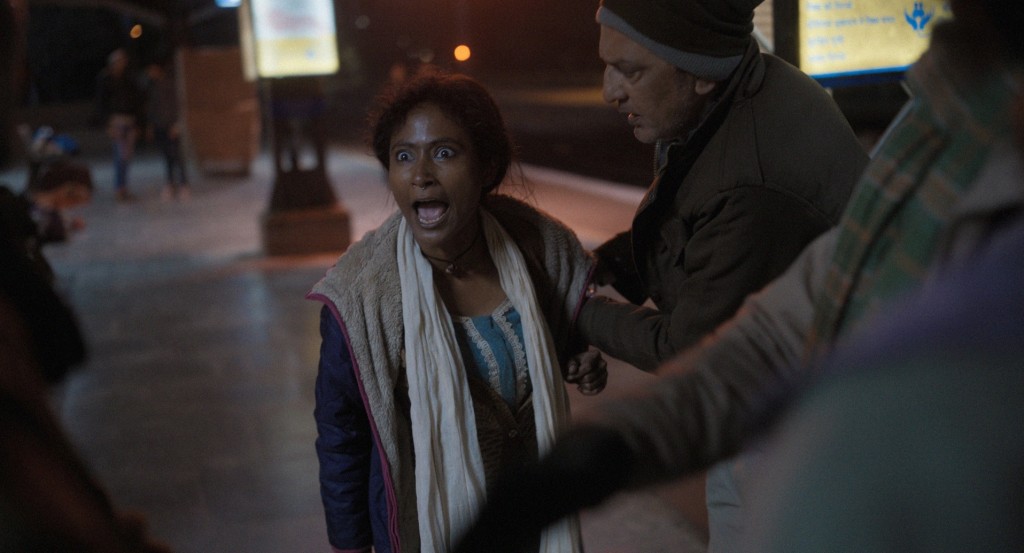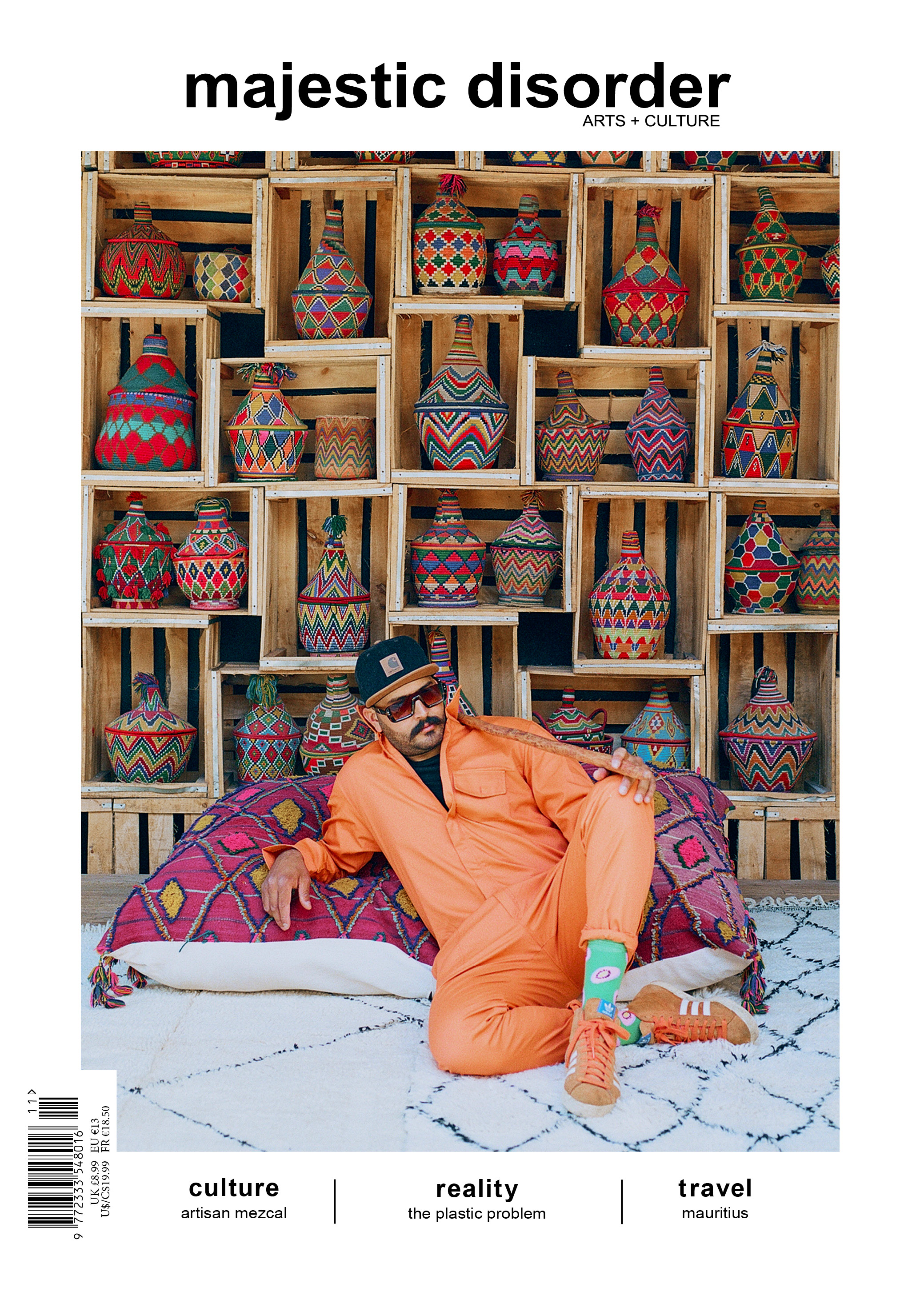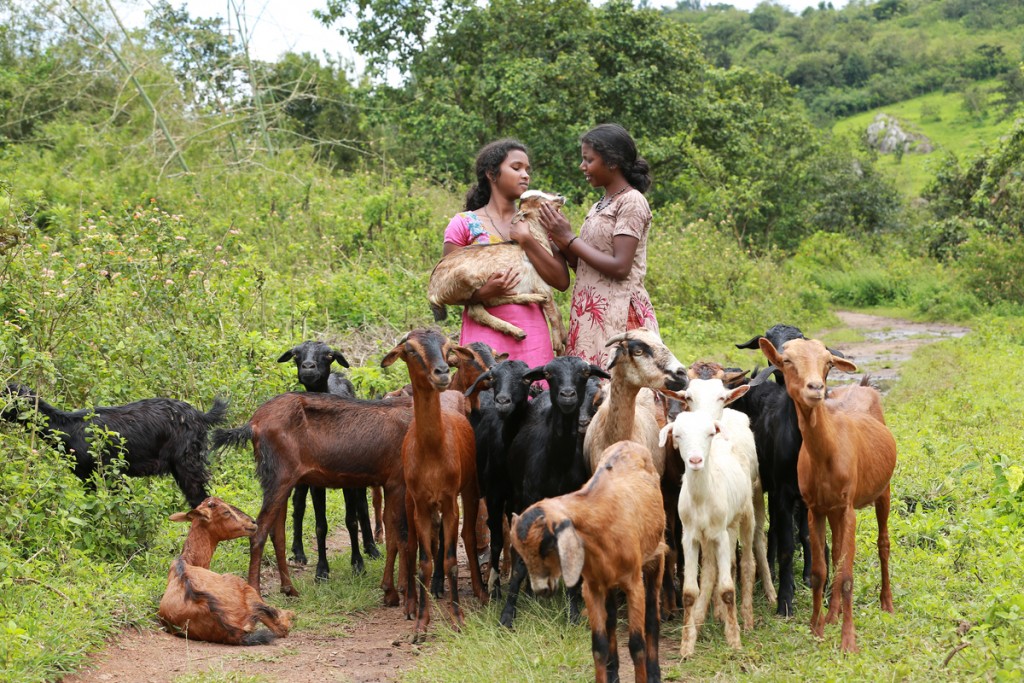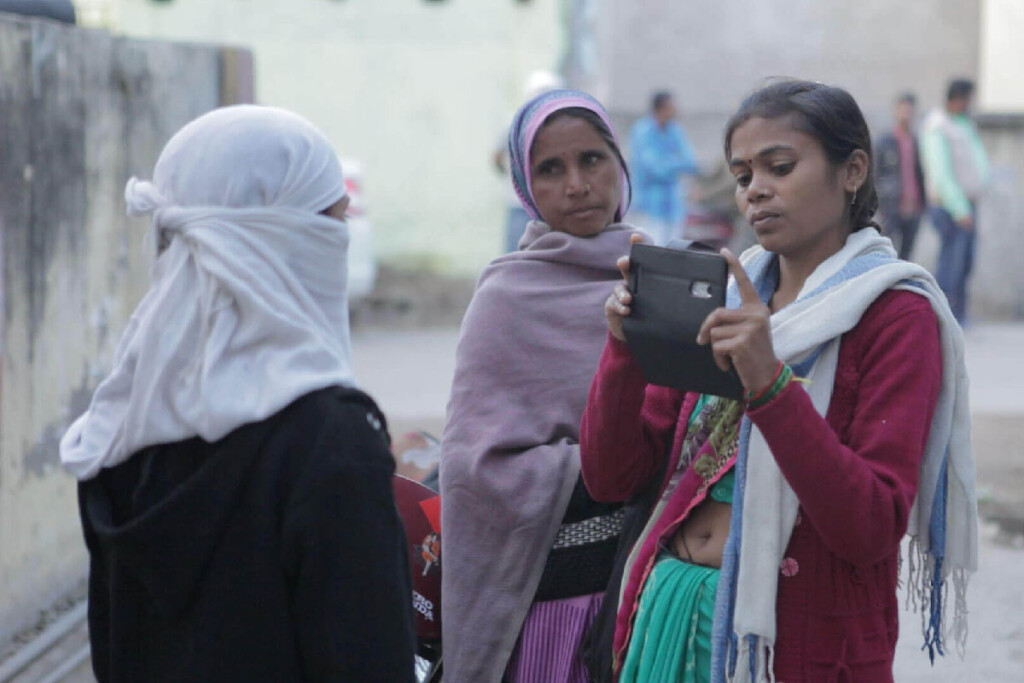Indie indian cinema
Words Sean Stillmaker

Every 10 minutes a child goes missing in India. It’s an alarming statistic for a country with more than 1 billion people. A reaction to this epidemic has been vigilantism, hyperbolized in the media as WhatsApp lynchings. Unfortunately, those who’ve been wrongfully accused, are tragically murdered by angry mobs intent on delivering justice for child trafficking.
It’s this dreadful reality that’s explored in the fictional film Stolen. “My film is a tempered down version of what is going on with this phenomenon,” says director Karan Tejpal, who’s boldly making his feature film debut.
It was the 2018 incident in the district of Karbi Anglong in the northeastern state of Assam that struck Karan. Fake news was spreading over WhatsApp that child kidnappers were in the area. Nilotpal Das, a 29-year-old musician, and Abhijit Nath, a 30-year-old businessman, were walking back from fishing when an angry mob mistakenly identified them as the criminals. They were then heinously beaten to death with the mob recording the entire incident. It’s been over five years since the horrific incident, and the courts of Assam have yet to sentence those responsible for the execution of Nilotpal and Abhijit.
“Seeing that video, I can never unsee it,” Karan painfully says. “And really that was the seed [of the film] because those people, those two young men were like me, like us; they were regular folks.”
Karan’s film takes a grounded approach through this prism with two brothers, Gautam, a businessman played by Abhishek Banerjee and Raman, a photographer, played by Shubham. Gautam is picking up his brother at a train station, when a woman named Jhumpa, played by Mia Maelzer, has her infant child kidnapped, whilst she was waiting on the station platform. The empathetic Raman compels Gautam to get involved to help Jhumpa and the local police chase down the culprit. What happens over the next day changes them all forever.
Stolen is an expertly paced 90-minutes of unsettling thrills that continuously unfolds gratifying plot twists and peels back layers revealing dimensional characters, whilst exploring the societal context that shaped them. Stolen has the DNA of an indie and delivers like a mainstream thriller.
“It’s been a very hard space to make this film and especially with a first time director,” says producer Gaurav Dhingra. “But for me, that’s the opportunity I see. A first time director is a way to say that there are new voices.”
Gaurav and his Jungle Book Studio production company was working with Karan on a series of projects, mainly advertising related, but then one day he came in with this idea and they decided to pursue it. Although this is Karan’s feature directorial debut, which he is a co-screenwriter, it’s not his first full length screenplay. He was previously selected into India’s NFDC Screenwriter’s Lab with his first feature script, Sunset Club, as well as being selected into the Sundance Institute Screenwriters Lab with his second, Nisar.
Writing Stolen took about two years, which Karan was the primary along with Gaurav and a third writer, Dr. Swapnil Salkar “Agadbumb” ⎯ a regular collaborator of Gaurav for the last decade that has a day job as a doctor.
“Three is the toughest number to work with in writers. It’s kind of complicated. Two is better than three … but, you know, it worked out for us,” Karan explains. “A little later in the project, Swapnil took over the primary writer’s role when we started to do dialogues. He has a good gift of gab where dialogues come in.”
Once the screenplay was in its best shape, the team sent it to Abhishek who signed on immediately after two days of reading the script.
“I got the script, I knew it was good. Usually I say yes to a script like that. If I’m taking time, that means I’m not liking the script,” Abhishek explains over a cup of tea after the film’s screening at the BFI London Film Festival.
At the time, the characters of Gautam and Raman were written as friends, but Abhishek felt this needed to be changed to where they’re brothers, “in order to get that emotional quotient higher,” Abhishek says.
During this early phase, Karan constantly stressed that the chemistry between the two characters was paramount. So that’s how Shubham became involved, because, “there’s no other guy I can have a great chemistry apart from [Shubham],” Abhishek explains.
Shubham and Abhishek had known each for over 20 years. “We graduated from the same college, and we used to do theatre together ⎯ we did a lot of plays together,” says Shubham.
As Shubham modestly details their history, Abhishek sitting next to him quickly interjects, “We were kind of the stars in our theatre group!” It was certainly the script and Abhishek that got him to commit, but for Shubham though, what really motivated him was Karan’s vision for the film.
“I think it’s not just about the script ⎯ because I’ve seen a lot of good scripts, which when they’re made, it’s not good,” Shubham says. “When I had a chat with Karan, after reading the script, that actually excited me because the way he was thinking to shoot the film was really exciting. He was thinking of shooting the whole film in one shot only. So, I thought, ‘oh, here’s a director who’s taking risks.’”
As the production rolled along, doing it all in one-take was abandoned as it would be staggeringly complex and a detriment to the mosaic the team finally created as the film unfolds between multiple locations, riveting chases and a ticking compression of time from night to day. Complementing this early vision though, many scenes play out in long takes, which don’t even appear so, as the dialogue and acting are so gripping.
Rounding off the emotional magnitude of the story is the character of Jhumpa played by Mia. Originally written to be an illegal immigrant from Bangladesh, it was Mia’s input that led to making Jhumpa indigenous from the tribal areas between Jharkhand and Bengal. It was Mia who thought Jhumpa should speak a very specific dialect of Bengali and would switch to it as necessary throughout the film.
“As an actor, as a performer, [Mia’s], somebody who gets under the skin of her character. So she did a lot of personal research that then I had access to,” Karan explains. “She went and met surrogate mothers. She went and met moms who had their children lost. And via her, I had access to that material because all of those ladies were so much more open [with talking to another] woman. So Mia was really an integral part in building out Jhumpa.”
With the cast and crew set, the production embarked on a tight 26 day shooting schedule in January 2023. As most of the film takes place at night and the early morning hours, they had very short windows to film because by 9:00 am, India has the blazing sun out and racing towards its midday peak.
“We were making an indie film, so things were falling apart ⎯ not in one department,” Abhishek says. “Every department!” Shubham stresses.
“We were having fun with it. And that’s the best thing about working with your best buddy, or people who you have a camaraderie with,” Abhishek says. “That even the struggles, they seem to be obstacles, but basically, it becomes like an adventure … But we were having fun with it. And then we get calls from Venice, BFI, and that feels great. I don’t think we remember any of the challenges now.”
The film was shot in and around Pushkar, which is just under 100 miles southwest of the Rajasthan capital city of Jaipur. Although it was filmed there, all of the villages, streets and train stations mentioned in the film are fabricated.
“It’s kind of giving you the texture of Rajasthan, of course with the language, and, you know, you feel like you’re in a desert kind of a space,” Gaurav says. “But we didn’t want to [be specific]. This story can be anywhere in India. That was the whole idea.”
Once production wrapped, they were racing to get a cut submitted into the Venice Film Festival by the May deadline. “We just sent in a rough cut that even I wasn’t happy with, honestly,” Karan says. “But we had to at least try.”
Then a month later in June, the curators sent an email asking if they had an updated cut from what they submitted. “We sent it to them, and in the next two hours we were selected,” Gaurav says.
Elation to the nth degree is how everyone in the cast and crew felt with Stolen’s world premiere at the Venice Film Festival and then selected into BFI London Film Festival. “I was so overwhelmed, I literally had to drink a bottle of champagne to calm myself down,” Karan vividly recalls.
The filmmakers are now touring the world showcasing the remarkable achievement of independent Indian cinema. Stolen will be made widely distributed in 2024.
Related Reading







 @majesticdisorder
@majesticdisorder